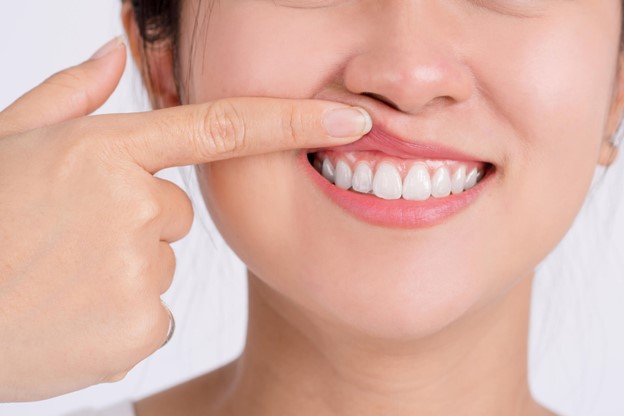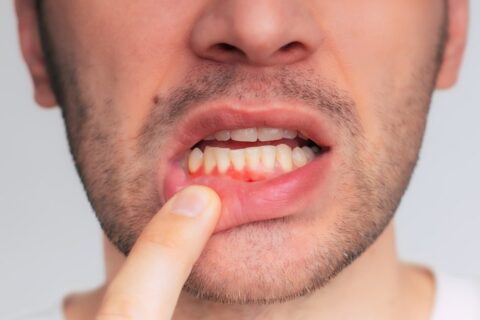The Ultimate Guide to Preventing Gum Disease: Expert Tips and Techniques
Our Guide to Gum Disease Prevention in Scottsdale, AZ
Gum disease affects millions of Americans. Your gums play a crucial role in your oral health and overall well-being. When you take steps to protect them, you invest in your long-term dental health and overall quality of life. Residents of Scottsdale and Paradise Valley, AZ, have access to excellent dental care and resources for maintaining healthy gums. Prevention remains the best approach to avoiding gum problems. Simple daily habits combined with regular professional care can keep your gums strong and healthy for years. With the proper guidance, you’ll learn to recognize early warning signs, develop effective daily routines, and understand when to seek professional help. Taking action now can save you from more serious problems later.

What Is Gum Disease?
Gum disease develops when bacteria build up along your gum line. Gingivitis is considered the early stage of gum disease. When you brush or floss, your gums may appear red, swollen, or bleed. The good news is that gingivitis can be treated with proper dental care. Periodontitis occurs when gingivitis goes untreated. This advanced stage affects the tissues and bones that support your teeth. Bacteria create toxins that damage your gum tissue and can lead to tooth loss. The infection may spread beyond your mouth and affect your overall health. Several factors are likely to increase your risk of developing gum disease. Poor oral hygiene is what allows plaque to build up and harden into tartar. Smoking reduces blood flow to your gums and makes healing difficult. Certain medications, genetic factors, and health conditions like diabetes can also make you more susceptible to gum problems.
The Importance of Healthy Gums
Healthy gums support more than just your teeth. Research shows strong connections between gum health and your overall well-being. Bacteria from gum disease can enter your bloodstream and contribute to heart disease, stroke, and other serious health conditions. Pregnant women who have gum disease may face higher risks of premature birth and low birth weight babies. Many believe bleeding gums are normal, but this is a common myth. Healthy gums should never bleed during routine brushing or flossing. Another false assumption is that gum disease only affects older adults. People of all ages can develop gum problems, especially if they skip regular dental care. Your gums act as a protective barrier around your teeth. When they stay healthy, they prevent bacteria from reaching the deeper structures that support your teeth. Strong gums also help maintain your bite and jaw function. Taking care of your gums protects your smile and your overall health.
Recognizing the Symptoms of Gum Disease
Gum disease can harm your smile and overall health. Catching it early makes treatment easier. Pay attention to changes in your gums. Symptoms to look for include:
- Bleeding Gums: Gums that bleed when you brush or floss need attention. This is often an early sign of a problem.
- Bad Breath: Persistent bad breath can mean bacteria are building up. This often happens along your gum line.
- Swollen Gums: Red, swollen, or tender gums point to inflammation. They might also feel sore when you eat.
- Gum Recession: Gums pulling away from teeth expose more tooth surface. This can lead to tooth sensitivity.
- Loose Teeth: Teeth that shift in your bite or feel loose can show damage to supporting structures. This needs quick care.
- Pain or Pus: Ongoing pain or pus around your gums signals advanced infection. Seek treatment right away.
Daily Habits for Gum Disease Prevention
Build healthy gums with simple daily habits. Consistent oral care helps prevent gum disease and keeps your mouth feeling fresh. Focus on these essential steps for effective gum and periodontal care:
- Proper Brushing: Use a soft-bristled toothbrush and fluoride toothpaste. Brush for two minutes, focusing on the gum line where plaque hides. Replace your toothbrush every three months.
- Flossing Each Day: Clean between teeth to remove plaque and food particles. Use about 18 inches of floss, curving it around each tooth for thorough cleaning.
- Antibacterial Mouthwash: Rinse with a mouthwash that targets plaque. Follow the label’s instructions for timing to help protect your gums and freshen breath.
Nutrition and Lifestyle for Healthy Gums
What you eat and how you live greatly affects your gums. Proper nutrition helps your gums stay strong and fight off infections like gingivitis, while certain habits can put them at risk. Here’s how nutrition and lifestyle choices impact your gums:
- Vitamin C: Foods rich in vitamin C, like oranges or strawberries, help gums stay strong and resist infection.
- Folate: Leafy greens provide folate, which supports gum tissue repair. This is key to maintaining healthy gums.
- Dairy Products:Dairy supplies calcium and protein, essential nutrients your gums need to remain healthy.
- Limit Sugar:Sugary foods feed bad bacteria in your mouth, creating an environment where they thrive, increasing the risk of gum disease.
- Avoid Smoking:Smoking significantly raises your risk of gum disease.
- Stay Hydrated: Drinking plenty of water helps wash away food particles and bacteria, keeping your mouth cleaner throughout the day.
The Role of Regular Dental Visits
Professional cleanings remove tartar that you cannot eliminate with home care. Dental hygienists use special tools to clean below the gum line, where bacteria often hide. These cleanings help prevent gum disease and allow your dental team to monitor your gum health over time. Most people benefit from regular dental visits every six months. Some individuals may need more frequent appointments based on their risk factors or current gum health. Your dentist can recommend the best schedule for your specific needs. Regular check-ups allow for early detection and treatment of any problems. During a periodontal exam, your dentist measures the spaces between your teeth and gums. Deeper pockets may indicate gum disease and require additional treatment. Your dentist will also check for signs of inflammation, bleeding, and other symptoms.
Advanced Periodontal Treatment
Effective periodontal care can support healthy gums and prevent further damage from gum disease. Explore the benefits of these techniques below:
- Scaling and Root Planing: Deep cleaning of bacteria and tartar below the gum line and smoothes root surfaces to support gum reattachment.
- Laser Therapy: Targets infected tissue with precision. Reduces discomfort and promotes faster healing.
- Flap Surgery: Accesses deep areas to clean and repair damaged tissue. Improves gum and bone health.
- Bone Grafts: Rebuilds lost bone structure for stronger support. Protects teeth and surrounding tissue.
- Soft Tissue Grafts: Restores receding gums to protect teeth. Enhances gum appearance and strength.
Frequently Asked Questions
Preventing gum disease can be challenging, which is why we understand if you have questions. Take charge of your dental health with answers to frequently asked questions, including:
- What are the best ways to prevent gum disease? Brush twice daily with fluoride toothpaste, floss daily, and visit your dentist regularly for cleanings and check-ups. Avoid smoking and limit sugary foods that feed harmful bacteria, as well as these hygiene tips.
- How often should I visit the dentist for gum care? Most people need dental visits every six months, but your dentist may recommend more frequent appointments if you have risk factors for gum disease or current gum problems.
- Can gum disease be reversed? Gingivitis, the early stage of gum disease, can often be reversed with improved oral hygiene and professional treatment. Advanced gum disease (periodontitis) can be managed but typically cannot be completely reversed.
- What are the risks of untreated gum disease? Untreated gum disease can lead to tooth loss, bone damage, and serious health problems, including heart disease and stroke. The infection may also affect diabetes control and pregnancy outcomes.
- Are there specific products recommended for gum health? Use a soft-bristled toothbrush, fluoride toothpaste, and antibacterial mouthwash. Water flossers can supplement regular flossing, especially for people with braces or dental work that makes flossing difficult.
Take Action for Your Gum Health Today
Preventing gum disease starts with simple daily habits and regular professional care. The steps outlined in this guide can help you maintain healthy gums and avoid serious dental problems. Early detection and treatment make all the difference in preserving your oral health. S&L Dental provides comprehensive periodontal care for Scottsdale and Paradise Valley, AZ, families. Dr. David Ngo and his experienced team offer gentle, effective treatments to help you maintain optimal gum health. From routine cleanings to advanced periodontal therapy, they have the expertise to address all your dental needs. Don’t wait until problems develop. Schedule your appointment with S&L Dental today and take the first step to a brighter smile.


